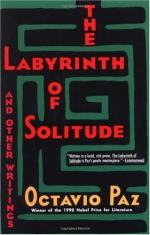|
This section contains 484 words (approx. 2 pages at 400 words per page) |

|
Chapter 7 Summary and Analysis
Mexican culture is complex, searching for its identity through the discovery of its meaning. Vasconcelos, a Mexican philosopher who founded modern Mexican education, understood action and participation, arguing for education to be secular and traditional. He opposed liberal and positivist movements. He proposed socialistic education creating conflict between old and new structures. As Spaniards permitted various types of ownership, communal ownership remained, provoking other dilemmas over its legitimacy. Contemporary writing endeavored to tackle indigenous themes, colonial issues, and the Revolution. The connection with the Spanish heritage became obvious when returning to tradition while newness and futurity were embraced through a certain free spirit.
When the Revolution was over, intellectuals undertook to improve law and education, but failed in their analysis and judgement. Intellectuals in Mexico have a more political role than intellectuals in Europe or the United States where they act...
(read more from the Chapter 7 Summary)
|
This section contains 484 words (approx. 2 pages at 400 words per page) |

|




